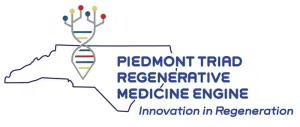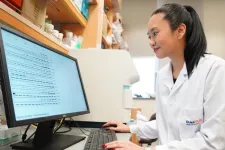When the brain speaks, the heart feels it
Technion researchers present surprising findings about the effect of the brain on recovery from a heart attack
2024-07-17
(Press-News.org)
Research by the Technion has demonstrated that activation of the brain’s reward system could boost recovery from a heart attack. The research, which was conducted at the Ruth and Bruce Rappaport Faculty of Medicine, was led by Ph.D. student Hedva Haykin under the supervision of Prof. Asya Rolls and Prof. Lior Gepstein.
The Technion research group focused on the reward system, a brain network activated in positive emotional states and motivation and evaluated its potential in improving recovery from acute myocardial infarction (AMI) (commonly known as a heart attack). In an article published by the researchers in Nature Cardiovascular Research, they demonstrate how in AMI in mice, the activation of this system significantly reduces the extent of the resulting infarct scarring and improves the clinical outcomes of the AMI. The research findings establish a causal connection between the reward system and recovery from AMI, introducing potential therapeutic avenues for intervention.
It has long been known that emotional states are able to influence cardiac function. For example, in an extreme case known as “Broken Heart Syndrome,” acute stress is liable to trigger a condition that mimics a heart attack. Broken heart syndrome is a condition where some of the heart muscle weakens rapidly, but there is no evidence of blocked coronary arteries. Similarly, psychological processes have a known impact on recovery from a heart attack, and on cardiovascular disease in general. For instance, anxiety and depression can worsen the heart’s condition, whereas positive emotional states can improve it.
The physiological mechanisms at the foundation of the heart-brain connection are still unclear. Now, thanks to the collaboration between Profs. Rolls and Gepstein, there is good reason to hope that the research findings will lead to improvements in the treatment of heart disease. Heart attacks occur when blood flow to the heart muscle (myocardium) is obstructed following partial or complete blockage of a coronary artery by blood clots. In the acute phase, this is liable to lead to a variety of severe symptoms, and even to life threatening arrhythmia (sudden cardiac arrest). In the chronic phase, prolonged deprivation of oxygen supply to the myocardium can lead to necrosis and post-necrotic myocardial scarring as part of an inflammatory reaction. This leads to a gradual decline in the heart’s ability to pump, to the point of developing a clinical condition known as heart failure. As mentioned, there is evidence that the emotional state can influence the course of disease and recovery following AMI, but until now, the underlying physiological mechanisms were not well understood. The Technion research reveals a novel mechanistic connection between the mental state and recovery outcomes from heart attack.
The reward system is largely activated by the release of dopamine in the ventral tegmental area (VTA) in the brain. Positive expectations and motivation stimulate neurons in the VTA. Studies in Prof. Rolls’ laboratory have shown that activation of VTA dopaminergic neurons modulates immune activity, partly through the regulation of the sympathetic nervous system. In the present study, active intervention in the VTA by the researchers following AMI resulted in favorable modulation of the immune response within the damaged myocardium, a reduction in myocardial fibrosis, an increase in blood vessel formation, and, as a result, an improvement in cardiac performance. The researchers found that these beneficial effects on the heart are mediated, at least in part, by the secretion of the protein, complement component C3, by the liver, which is also a member of the immune system.
There are presently numerous methods to actively (as opposed to naturally) stimulate the reward system, in humans as well. This effect is potentially achievable by available, non-invasive means, including pharmacological interventions, biofeedback, and focused ultrasound. Consequently, the Technion researchers’ scientific discovery could have meaningful future implications on the treatment of heart attacks.
Prof. Lior Gepstein, Director of the Cardiology Department at Rambam Health Care Campus and an academic staff member at the Rappaport Faculty of Medicine, is a world-renowned cardiac researcher. Among other subjects, his diverse research studies discuss the generation of heart tissue from human embryonic stem cells, cardiac arrythmias and their treatment, and the development of molecularly targeted therapies and cell transplantation in heart disease. His many achievements include the development of a biological pacemaker (Nature Biotechnology), cardiac tissue engineering (Nature Communications), development of optogenetic-based therapies for the treatment of cardiac disorders (Nature Biotechnology), and innovative models based on induced pluripotent stem cells for research and treatment of inherited heart conditions (Nature) and drug development.
Prof. Asya Rolls is a psychoneuroimmunologist and a leading researcher in psychosomatic effects, i.e., physiological mechanisms whereby emotions and thoughts affect physical health. In research published by Prof. Rolls in Nature Medicine in 2016, she demonstrated that intervention in the brain’s reward system strengthens immunological host defense, thus enhancing defenses against bacterial infections. In an article published in Nature Communications two years later (2018), Prof. Rolls showed that activation of the reward system attenuates tumor growth. In another article, published in 2021 in Cell, Prof. Rolls demonstrated the ability to “reactivate” colon inflammation (colitis) by influencing the brain alone.
Hedva Haykin recently completed her doctoral studies under the joint supervision of Prof. Rolls and Prof. Gepstein in the framework of the Faculty of Medicine’s multidisciplinary program for outstanding students, while concurrently completing her MBA studies at the Technion. As mentioned, her present research was published in Nature Cardiovascular Research, and she was also recently awarded the Israel Heart Society’s J.J. Kellerman Young Investigator Award for 2024.
The present research was supported by the European Research Council (ERC), the Howard Hughes Medical Institutes (HHMI), the Wellcome Trust, Israel Science Foundation (ISF), and the Mirian and Sheldon G. Adelson Medical Research Foundation.
END
ELSE PRESS RELEASES FROM THIS DATE:
2024-07-17
ATLANTA — A research team at Georgia State University has developed tiny, potent molecules that are capable of targeting hidden strains of HIV. The source? Antibody genes from llama DNA.
The research, led by Assistant Professor of Biology Jianliang Xu, uses llama-derived nanobodies to broadly neutralize numerous strains of HIV-1, the most common form of the virus. A new study from this team has been published in the journal Advanced Science.
“This virus has evolved a way to escape our immune system. Conventional antibodies are bulky, so it’s difficult for them to find and attack the virus’ surface,” ...
2024-07-17
You join a swing dance class, and at first you’re all left feet. But – slowly, eyes glued to the teacher – you pick up a step or two and start to feel the rhythm of the big band beat. A good start.
Then you look over and realize the couple next to you has picked up twice the steps in half the time.
Why?
According to a new study from University of Florida biomechanical researchers, the quick, athletic learners among us really are built differently – inside their brains.
That’s what UF Professor of Biomedical Engineering Daniel Ferris, Ph.D., and his former doctoral student, Noelle Jacobsen, Ph.D., discovered when they studied how people learn ...
2024-07-17
-With images-
Researchers at Durham University, UK and Isfahan University of Medical Sciences, Iran have developed an innovative approach to diagnosing Multiple Sclerosis using advanced eye imaging techniques.
This groundbreaking method could revolutionise how Multiple Sclerosis is detected, offering a faster, less invasive, and more accessible alternative to current diagnostic procedures.
The study, led by Dr Raheleh Kafieh of Durham University, integrates two types of eye scans: optical coherence tomography (OCT) and infrared scanning laser ophthalmoscopy (IR-SLO).
By training computer models ...
2024-07-17
Traveling to and from a clinic or a laboratory for treatment can be difficult and expensive for older Americans. To address this, scientists developed and tested a new training and supervision program for older adults so they can receive Transcranial Electrical Stimulation (tES), a promising intervention for various clinical conditions, in their homes.
Published in Neuromodulation: Technology at the Neural Interface, this groundbreaking training and supervision program was designed to introduce and teach caregivers, family members, and patients how to administer home-based transcranial electrical stimulation (HB-tES), equipping them ...
2024-07-17
GRAND RAPIDS, Mich. (July 17, 2024) — Van Andel Institute scientists have identified more than 1,000 previously undetected proteins in common metabolite samples, which persist despite extraction methods designed to weed them out.
The findings, published in Nature Communications, give scientists new insights and tools for improving future metabolomics experiments, including a novel protocol for removing these proteins during the extraction process. The study does not invalidate prior results but instead reinforces the importance ...
2024-07-17
A new study found that increased exposure to residential greenery may help stave off cognitive decline by an annual rate of eight months. This delay was observed more among people living in low-socioeconomic status and highly populated neighborhoods, as well as people who carry the APOE-ɛ4 gene, which is associated with an increased risk of Alzheimer’s disease.
Research has shown that about 40 percent of dementia could be prevented or delayed worldwide by addressing modifiable risk factors associated with the condition, particularly during midlife.
A new study led by a Boston University School of Public Health (BUSPH) ...
2024-07-17
When trying to understand the present, it's helpful to look to history. New research from the University of Nebraska–Lincoln examined the fossil record going back 66 million years and tracked changes to mammalian ecosystems and species diversity on the North American continent.
The study, led by Alex Shupinski, who earned her doctorate in May, and co-authored by Kate Lyons, associate professor in the School of Biological Sciences, provides a large-scale view of how species diversity changed over the first 65 million years of the Cenozoic era — up until the arrival of humans — ...
2024-07-17
Winston-Salem, North Carolina — July 17, 2024 — The RegeneratOR Test Bed, located in Innovation Quarter, announces the inclusion of Cytoink into its pioneering ecosystem dedicated to advancing biomedical research and development. Cytoink brings cutting-edge biomaterials manufacturing, with over 100 custom formulations, and bioprinting expertise that merges biofunctionality with high-throughput production. Cytoink specializes in the biofabrication of in vitro 3D tissue phantoms, extrusion-based and light-based (DLP/VAM) bioinks, and integrated perfusion microfluidics bioreactors. Additionally, Cytoink provides bespoke biomaterial solutions ...
2024-07-17
Jeffrey Spraggins, associate professor of cell and developmental biology, biochemistry, and chemistry, has been named director of the Mass Spectrometry Research Center. He succeeds Richard Caprioli, Stanford Moore Chair in Biochemistry, who established the MSRC in 1998 and who is retiring this summer.
Spraggins is a leading scientist in spatial biology and imaging mass spectrometry—an untargeted molecular imaging approach that enables molecular mapping at cellular resolution—a technology originated by Caprioli. Spraggins’ research lies at the intersection of technology development, data science, and biomedical research. His research group ...
2024-07-17
An ageing population will bring colossal health, social, and economic challenges over the coming decades[1]. As people live longer, staving off the physical decline and frailty that come with age has become a holy grail, with effective interventions projected to unlock significant societal and economic benefits. Estimates suggest that a slowdown in ageing that increases life expectancy by one year alone is worth US$38 trillion.[2]
In a discovery published in Nature, a team of scientists from Duke-NUS Medical School in Singapore may have found a key to slow ageing.
The ...
LAST 30 PRESS RELEASES:
[Press-News.org] When the brain speaks, the heart feels it
Technion researchers present surprising findings about the effect of the brain on recovery from a heart attack



